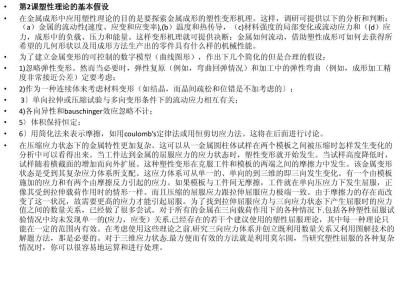随着全球经济一体化的发展,商务英语在当今社会变得越来越重要。下面是小编带来的商务英语文章带翻译,欢迎阅读!
商务英语文章带翻译
World economy
The jobs crisis 失业危机
It’s coming, whatever governments do; but they can make it better or worse
不论政府如何努力,失业危机已经到来。不过政府可以在这场危机中起到关键作用
Illustration by Belle Mellor
NOTHING evokes the misery of mass unemployment more than the photographs of the Depression. You can see it in the drawn faces of the men, in their shabby clothes, in their eyes. Their despair spawned political extremism that left a stain on society; but it also taught subsequent generations that public policy has a vital part in alleviating the suffering of those who cannot get work. Thanks to welfare schemes and unemployment benefits, many of which have their origins in those dark days, joblessness no longer plunges people into destitution, at least in the developed world.
再没有什么比关于经济大萧条的照片更能让人体会大量失业的痛苦。这种痛苦显见于人们紧绷的面容,褴褛的衣衫,还有他们的眼神。由人们的绝望所引发的政治极端主义给社会留下污点;失业问题也使后人懂得公共政策在减轻失业痛苦方面所起到的重要作用。很多福利计划和失业救济金方案都发轫于那些灰暗的失业时期;受惠于这些计划,至少发达国家的人们不再因为失业而陷入穷困。
Not even the gloomiest predict that today’s slump will approach the severity of the Depression, which shrank America’s economy by more than a quarter, and put a quarter of the working-age population out of a job. But with the world in its deepest recession since the 1930s and global trade shrinking at its fastest pace in 80 years, the misery of mass unemployment looms nonetheless, and raises the big question posed in the Depression: what should governments do?
即使是最悲观的预计都不认为眼下的衰退会接近大萧条的程度,后者使美国经济缩水四分之一,四分之一的就业人口失去工作。但随着世界经济出现自1930年代以来的最大幅度衰退以及全球贸易80年来的最快速萎缩,大规模失业的恶魇再度凸显,并且抛出了和大萧条时期一样的大问题:政府应该做些什么?
Join the queue 加入失业队伍
In the rich world the job losses are starkest in America, where the recession began. Its flexible labour market has shed 4.4m jobs since the downturn began in December 2007, including more than 600,000 in each of the past three months. The unemployment rate jumped to 8.1% in February, the highest in a quarter-century. An American who loses his job today has less of a chance of finding another one than at any time since records began half a century ago. That is especially worrying when the finances of many households have come to depend on two full incomes.
富裕国家的失业问题在衰退肇始的美国最为显著。自从07年12月经济陷入低迷以来,美国灵活的劳动力市场已经溢出了440万份失业,其中在过去三个月内每月产生了60万份。二月的失业率跃升至8.1%,是25年来的最高数字。比起有纪录的半个世纪内的任何时期,眼下失业的美国人更难再找到一份工作。特别是当很多家庭的财政依靠双职工收入的时候,这种情况尤其令人堪忧。
But it is already clear that unemployment will strike hard far beyond America and Britain. In Japan output is plunging faster than in other rich economies. Although unemployment is low, rapid job losses among Japan’s army of temporary workers are exposing the unfairness of a two-tier labour market and straining an egalitarian society.
然而显而易见的是,失业问题的沉重打击远不止于美国和英国。日本的生产量比其他富裕经济体下降得更快。尽管失业率尚低,但临时工当中快速增长的失业大军显示了“双层劳工市场”的不公平性,加剧了一个平等社会中的紧张。
In Europe joblessness has grown fastest in places such as Spain and Ireland, where building booms have crashed, but has only begun to edge up elsewhere. The unemployment rates in many European countries are below America’s, but that may be because their more rigid labour markets adjust more slowly to falling demand. Given how fast European economies are shrinking, nobody doubts that worse lies ahead. By the end of 2010, unemployment in much of the rich world is likely to be above 10%.
在欧洲,建筑业热潮遭遇重创的西班牙和爱尔兰等国失业速度增长最快,而在其他地方则初现端倪。很多欧洲国家的失业率都低于美国,但也许这只是因为它们有更加严格的劳工市场,从而对下降的市场需求适应更慢。面对着快速萎缩的欧洲经济,没有人会怀疑更糟糕的就业局面就在眼前。到2010年底,多数富裕国家的失业率可能会超过10%。
In the emerging world the pattern will be different, but the outcome more painful. As trade shrinks, millions of workers are losing their foothold on the bottom rungs of the global supply chain. Poverty will rise as they sink into informal work or move back to the land. The World Bank expects some 53m people to fall below the level of extreme poverty this year.
发展中国家的情况就不一样了,只不过结果会更人头疼。随着贸易萎缩,数以百万计的工人正失去他们在全球供应链条底端的立锥之地。他们转向非正式工作或者回到农村,伴随而来的是贫困问题的抬头。世界银行预计,今年将有约5300万人降到极端贫困线以下。
Politics dictates that governments must intervene energetically to help. That’s partly because capital has taken such a large share of profits for so many years that the pendulum is bound to swing back and partly because, having just given trillions of dollars to the banks, politicians will be under pressure to put vast amounts of money into saving jobs. But help cannot be measured in dollars alone. Badly designed policies can be self-defeating. After the recessions of the 1970s and early 1980s, Europe’s rigid labour-markets kept unemployment high for decades.
政治上,政府必须全力介入进行援助。这一方面是因为多年以来资本在利润中占去了很大份额,重心注定要返回;另一方面是因为给了银行万亿计美元的当政者们承担着巨大的压力,需要大量注资来挽救就业岗位。然而挽救不能仅以美元来衡量。错误的决策反倒会弄巧成拙。自1970年代和1980年代初期的经济衰退以来,欧洲缺乏灵活度的劳动力市场就使失业率几十年来居高不下。
Governments are piling in with short-term help for workers. In America, which has one of the lowest social safety nets in the rich world, extending unemployment benefits was, rightly, part of the recent stimulus package. Japan is giving social assistance to “non regular” workers, a group that has long been ignored. In general, however, it makes more sense to pay companies to keep people in work than to subsidise unemployment. Many countries are topping up the earnings of workers on shortened weeks or forced leave.
各国政府正为劳动者提供大量的短期援助。美国的社会保障体系在富裕国家中处于最低,而最近出台的经济刺激计划中,扩大失业救济金惠及面恰恰是计划中的一部分。日本为长期以来受忽视的“非固定”劳动者群体提供社会援助。不过总的来说,比起失业补助,资助企业以留住员工才是明智之举。很多国家通过缩短每周工作日或强制休假来满足劳工薪资。
These are sensible measures, so long as they are time-limited; for, in the short term, governments need to do all they can to sustain demand. But the jobs crisis, alas, is unlikely to be short-lived. Even if the recession ends soon (and there is little sign of that happening), the asset bust and the excessive borrowing that led to it are likely to overshadow the world economy for many years to come. Moreover, many of yesterday’s jobs, from Spanish bricklayer to Wall Street trader, are not coming back. People will have to shift out of old occupations and into new ones.
这些措施在一定时限内是合理的:因为在短期内,政府需要尽全力维持需求。只是哎呀,就业危机不大可能只在短期
内存在。即便经济衰退很快结束(而且几乎不可能发生),引起这场危机的阴云——资金短缺和过度借贷——将在接下来继续笼罩世界经济长达数年。更有甚者,不论是西班牙的砌砖匠还是华尔街的交易员,很多昔日的就业岗位会一去不复返。人们将被迫告别现有职位,转行进入新岗位。
A difficult dance 艰难的舞步
Over the next couple of years, politicians will have to perform a difficult policy U-turn; for, in the long term, they need flexible labour markets. That will mean abolishing job-subsidy programmes, taking away protected workers’ privileges and making it easier for businesses to restructure by laying people off. Countries such as Japan, with two-tier workforces in which an army of temporary workers with few protections toil alongside mollycoddled folk with many, will need to narrow that disparity by making the latter easier to fire.
在接下来的几年中,政治家们不得不做出一个180度的艰难政策转变:因为从长远来看,他们需要一个灵活的劳动力市场。这意味着废除工作补贴计划,去除受保护劳工的特权,以及帮助企业更方便地裁员从而进行重组。像日本这样具有双层劳动力结构的国家,大量埋头苦干的临时劳工缺乏就业保障,而被娇生惯养的上层员工却能享受到多重保护。这种差别需要通过严格上层员工的裁汰制度加以消除。
The euphemism for that is “flexibility”. The bare truth is that the more easily jobs can be destroyed, the more easily new ones can be created. The programmes that help today, by keeping people in existing jobs, will tomorrow become a drag on the great adjustment that lies ahead. As time goes by, spending on keeping people in old jobs will need to be cut, and replaced with spending on training them for new ones. Governments will have to switch from policies to support demand to policies to make their labour markets more flexible. That is going to require fancy political footwork; but politicians will have to perform those steps, because if they fail to, they will stifle growth.
这些措施可以委婉地概括为“灵活性”措施。更直白的事实是,现有工作越容易被废弃,新工作就越容易被创造。眼下这些保住人们饭碗的援助计划会在今后成为调整适应今后形势的拖累。随着时间推移,用在保留人员旧岗位的指出需要削减,取而代之的是为新岗位培养劳动者的开支。各国政府需要从支持需求的政策转变为建设一个更灵活的劳动力市场。这种转变需要富有想象力的政治谋划,但确实当政者们必须完成的步骤:因为如果他们不这样做,增长将被遏制。
However well governments design their policies, unemployment is going to rise sharply, for some time. At best it will blight millions of lives for years. The politicians’ task is to make sure the misery is not measured in decades.
然而,不论政府政策制定的多么完美,失业率在一段时间内仍将陡增。不过充其量它会在几年内让数百万人的生计陷于困境。当政者的任务是不要让这场不幸延续数十年。
(二)
China's trade
Surplus to requirements 顺差的需要
Why is China’s trade surplus growing when its exports have collapsed?
为什么中国的出口大幅下降时,贸易顺差却在增长?
THIS week revised figures revealed that China overtook Germany in 2007 to become the world’s third-biggest economy. At the start of last year China also looked set to become the world’s biggest exporter, but a slump in exports in the final months of the year meant they remained smaller than Germany’s. China’s exports tumbled by 13% (in dollar terms) in the fourth quarter, leaving them 3% lower in December than a year earlier. Despite this, China’s trade surplus rose to a record $457 billion at an annual rate in the fourth quarter—50% bigger than in the same period of 2007. What is going on?
本周,修正后的数字显示中国在2007年已经超越德国成为世界第三大经济体。在去年初,中国也目标成为世界上最大的出口国,但是年末数月出口的大幅下落意味着他们仍然排在德国之后。按照美元来计算,中国的出口额在第四季度下降了13%,比一年前同期少了3%。尽管如此,中国的贸易顺差在第四季度却以全年增速上升到创纪录的4570亿美元,比2007年同期增长了50%。这其中到底有何玄机?
In the first half of 2008 China’s trade surplus did indeed shrink (see chart). But since then, although exports slumped, imports fell by much more—down by 21% in the 12 months to December. The slide in both exports and imports was exacerbated by the global credit freeze, which has made it harder for companies around the world to get letters of credit to guarantee payment. Imports were also dragged down by cheaper oil and commodity prices, and by weaker imports of materials and components used to make exports (over 50% of total imports).
2008年上半年,中国的贸易顺差确实出现了缩水(见表)。但是自那以后,尽管出口大跌,但是进口跌的更惨——到12月时,12个月内下跌了21%。进出口双双下滑由于受到全球信贷停滞影响而加剧。这是因为信用冻结导致全世界的公司更加难以获得信用证从而保证支付。出口同样也受到拖累,其下跌主要是由于更廉价的原油和商品价格,以及原材料和用于出口产品的部件进口(占到进口总量的50%以上)表现疲软。
But a more worrying reason why China bought less from the rest of the world is that its domestic demand has weakened. Consumer spending and manufacturing investment have so far held up reasonably well, but construction—a big user of imported raw materials—has collapsed.
但是关于中国进口下降的一个更令人忧虑的原因是:中国的国内需求减小。消费支出和生产投资目前的收缩尚且适当,但是建筑业作为进口原材料的使用大户也出现了急剧下滑。
With most of the world in recession, China’s exports will continue to slide this year. Nomura forecasts a drop of 6%—the first annual decline for more than 25 years. Imports, on the other hand, are expected to increase. By mid-year, the government’s planned massive increase in infrastructure spending will boost imports of raw materials and machinery. If so, China’s trade surplus will shrink in 2009.
随着全球大部分地区陷入衰退,中国的出口今年将继续下滑。野村证券预测的下滑是6%,为25年来的首次下滑。另一方面,进口预计将增长。到年中时,政府计划的基础设施投入大幅增长将会推动原材料和机械进口。这样的话,中国2009年的贸易顺差将会缩水。
The collapse in exports and the consequent job losses in southern China have triggered speculation that the government might try to push down the value of the yuan. But not only would this provoke a protectionist backlash from America’s new government, it would also do little to help producers. China’s problem is weak foreign demand, not competitiveness. The best way for China to support its economy—and to help unwind global trade imbalances—is to bolster domestic demand.
出口剧减加上随之而来的中国南方的失业会导致政府考虑人民币贬值。但这将不仅激起美国新政府的保护主义反弹,对生产者也帮助甚小。中国的问题是在于疲软的国外需求,而不是竞争力。支持中国经济乃至帮助全球贸易摆脱不平衡的方法,是加强内需。
One piece of good news this week is that, following interest-rate cuts and the government’s scrapping of credit restrictions, total bank loans jumped by 19% in the 12 months to December, up from growth of 14% last summer. China is perhaps the only big economy where credit growth has heated up in recent months. If that is sustained, it could help to boost domestic spending.
本周的一个好消息是:随着减息和政府去除信贷限制,银行信贷总额到12月的12个月中从去年夏天的14%猛增19%。
中国也许是最近几个月内世界大经济体中唯一出现信贷增长加速的地方。如果增速持续,它将促进内需支出。
China certainly cannot rely on exports any more. Becoming the world’s biggest exporter will be of little comfort if global trade is spiralling downwards.
中国决不能再依赖出口。如果全球贸易持续下降,成为世界最大的出口国亦将无益。
(三)
China's stimulus
Got a light? 经济复苏已被点燃?
China’s big fiscal package may be starting to work
中国庞大的财政措施可能已经起效
“ONLY when all contribute their firewood can they build up a strong fire,” says a Chinese proverb. With the world economy in its worst crisis in 70 years, every country needs to do its bit to rekindle global demand. The American government, which plans to run a budget deficit of 12% of GDP this year, has called on its Group of 20 partners to do more. Is China one of the misers? Its budget, published last week, showed that it plans to run a deficit of only 3% of GDP. Was the 4 trillion yuan ($586 billion) infrastructure package unveiled last November, worth 14% of GDP, a sham?
中国有句民谚:“众人拾柴火焰高。”随着世界经济陷入70年以来的最大危机,要重燃全球需求之火,各国都责无旁贷。美国政府计划今年运行占国内生产总值12%的财政赤字,并号召二十国集团的伙伴们作出更多行动。中国是其中的吝啬鬼吗?它在上周公布的预算显示,中国计划运行的财政赤字只占GDP的3%。难道去年十一月公布的4亿元用于基础设施建设的措施——相当于GDP的14%——仅仅是在忽悠?
Beijing’s stimulus is smaller than the number announced last year, but it is still the biggest in the world. The fact that America is set to run a budget deficit four times the size of China’s as a share of GDP does not mean its demand stimulus is bigger; America started this year with a much bigger deficit. America’s deficit will increase by more than China’s this year, largely because it is suffering a deeper recession which will depress tax revenue. The correct measure of a fiscal stimulus is the change in the budget deficit adjusted for the impact of the economic cycle.
北京的刺激计划小于去年公布的数字,但这依然是世界范围内最大的经济刺激方案。尽管美国运行的财政赤字是中国的四倍,但这并不意味着它的需求性刺激计划就更大。美国从今年开始就保持了巨大的财政赤字,并且年内赤字增长将高于中国。这主要是因为美国遭受的经济衰退极大地减少了税收。财政刺激方案的正确措施应该是调整财政赤字以适应经济圈的冲击。
In China, however, even this would understate the true stimulus, because some public-infrastructure investment will be done by state-owned firms or local governments and financed by banks. Tao Wang of UBS estimates that new infrastructure investment, tax cuts, consumer subsidies and increased spending on health care will amount to a stimulus by the central government of about 3% of GDP in 2009. Adding in bank-financed infrastructure spending might lift the total to 4% of GDP.
然而在中国,经济赤字掩盖了真实的刺激方案,因为一些公共基础设施投资是由银行提供资金、国有公司或地方政府实施的。瑞银的陶旺(音)预计,新的基础设施建设、减税、消费补贴以及医疗方面的投资增长将构成总额占到GDP3%的09年中央政府刺激方案。如果加上由银行提供资金支持的基建支出,整个刺激方案将占到GDP的4%。
Chinese investment in railways, roads and power grids is already booming. In the first two months of this year, total fixed investment was 30% higher in real terms than a year earlier, and investment in railways tripled. China has been much criticised for focusing its stimulus on investment, rather than consumption, but in China in the short term this is the quickest way to boost domestic demand.
中国在铁路、公路和电网方面的投资已经大规模展开。今年头两个月内,固定投资总额较去年同期增长30%,铁路投资增长了3倍。很多批评认为,中国的刺激方案集中于投资而不是消费,但就短期来看,在中国这是提高国内需求最立竿见影的方式。
What about the other tool for boosting domestic spending, namely monetary policy? Since the start of last year, China has cut its interest rates by only half as much as America’s Federal Reserve has. New figures showing that consumer prices fell by
1.6% in the year to February have brought the first whiff of deflation, suggesting that China has not done enough to boost demand. But this is not true deflation, where falling prices are accompanied by shrinking money supply and credit. Bank lending grew by 24% over the past year. The true gauge of monetary easing is not the cut in interest rates, but whether it succeeds in spurring new lending. China is one of the few countries in the world where credit has accelerated since the start of the global credit crunch—though some of the lending is of the state-directed sort.
那么作为提高国内消费另一手段的货币政策又运用的怎样?从去年年初开始,中国已经将利率砍到美联储的一半。新的统计数字显示,到二月,消费品价格较去年下降了1.6%,从而带来了第一轮通货紧缩。这似乎意味着中国在提高需求方面做的尚且不够。但其实,这并不是真正的通货紧缩。真正的通缩情况下,货币供应和信贷会随着物价下降而萎缩。去年,银行借贷增长了24%。对银根放松的正确估量并非基于利率,而是其是否成功刺激新的借贷产生。中国作为世界上少有的几个国家,其借贷规模在全球信贷危机爆发后不降反升——尽管部分借贷是在国家指导下进行的。
China has not only accomplished considerable fiscal and monetary easing. By allowing the yuan to rise by 18% in trade-weighted terms over the past 12 months, Beijing is passing on some of that boost to the rest of the world.
中国不仅完成了规模可观的财政和银根放松计划,还通过让人民币在过去12个月内升值18%(贸易加权考虑在内),部分促进了世界货币经济增长。
The real question is whether China’s stimulus is big enough? Exports fell by a sharper-than-expected 26% in the year to February and may yet drop further. The 12-month rate of growth in industrial production also dropped to only 3.8% in the first two months of 2009, and retail-sales growth slowed to 15%. But there are some tentative signs of a recovery in domestic demand. As well as the increases in investment and bank lending, car sales and electricity consumption have picked up. Mingchun Sun of Nomura reckons that the stimulus will be enough to achieve 8% growth this year. But the government has made it clear that if the economy remains feeble, it will supply another fiscal boost.
真正的问题是:中国的贸易刺激方案数量是否已经够大?到今年二月,年出口额下降远超预期,达26%,并且可能继续下挫。工业生产12个月增幅在09年头两个月已将至3.8%,零售业增长放缓至15%。但是仍然有一些国内需求复苏的暂时性指标。除了投资和银行贷款增长外,汽车销售和电力消费同样得到提振。野村证券的孙明春(音)认为,经济刺激方案能够实现8%的年度经济增长。但是政府已经明确表示,如果经济持续疲软,将会提供另外的财政提振方案。
Such injections may be able to drag growth back to 8% this year, but they cannot keep the economy running at this pace if global demand remains depressed. The need for China to shift the mix of growth from exports to consumption has become more urgent. Chinese officials are right to say that it will take years for higher public spending on health care and a social safety net to reduce household saving—all the more reason to speed up such policies. If not, even China’s fire could burn out.
这些注入或许可以把今年的经济增长拉回到8%,但如果全球需求持续悲观,增速便难以维持。对于中国而言,出口转内销的需要已经更加紧迫。中国官员正确地表示,将会用数年时间增量投资公共卫生和社保体系以降低居民存款,使得这些政策的加速实施更加名正言顺。否则,即便是中国的经济火焰也会被扑灭。
商务英语文章带翻译
How to Attend a Meeting会议妙诀
To really succeed in a business or organization, it is sometimes helpful to know what your job is, and whether it involves any duties. Ask among your coworkers. "Hi," you should say. "I'm a new employee. What is the name of my job?" If they answer "long-range planner" or "lieutenant governor," you are pretty much free to lounge around and do crossword puzzles until retirement. Most jobs, however, will require some work.
There are two major kinds of work in modern organizations:
Taking phone messages for people who are in meetings, and, going to meetings.
Your ultimate career strategy will be to get a job involving primarily No. 2, going to meetings, as soon as possible, because that's where the real prestige is. It is all very well and good to be able to take phone messages, but you are never going to get a position of power, a position where you can cost thousands of people their jobs with a single bonehead decision, unless you learn how to attend meetings.
The first meeting ever was held was back in the Mezzanine Era1. In those days, Man's job was to slay his prey and bring it home for Woman, who had to figure out how to cook it. The problem was, Man was slow and basically naked, whereas the prey had warm fur and could run like an antelope. (In fact it was an antelope, only nobody knew this.)
At last someone said, "Maybe if we just sat down and did some brainstorming, we could come up with a better way to hunt our prey!" It went extremely well, plus it was much warmer sitting in a circle, so they agreed to meet again the next day,and the next.
But the women pointed out that the men had not produced anything, and the human race was pretty much starving. The men agreed that was serious and said they would put it right near the top of their "agenda". At this point, the women, who were primitive but not stupid, started eating plants, and thus modern agriculture was born. It never would have happened without meetings.
The modern business meeting, however, might better be compared with a funeral, in the sense that you have a gathering of people who are wearing uncomfortable clothing and would rather be somewhere else. The major difference is that most funerals have a definite purpose. Also, nothing is really ever buried in a meeting.
An idea may look dead, but it will always reappear at another meeting later on. If you have ever seen the movie, Night of the Living Dead2, you have a rough idea of how modern meetings operate, with projects and proposals that everyone thought were killed rising up constantly from their graves to stagger back into meetings and eat the brains of the living.
There are two major kinds of meetings:
A. Meetings that are held for basically the same reason that Arbor Day is observed --- namely, tradition. For example, a lot of managerial people like to meet on Monday, because it's Monday. You'll get used to it. You'd better, because this kind account for 83% of all meetings (based on a study in which I wrote down numbers until one of them looked about right). This type of meeting operates the way "Show and Tell"3 does in nursery school, with everyone getting to say something, the difference being that in nursery school, the kids actually have something to say.
When it's your turn, you should say that you're still working on whatever it is you're supposed to be working on. This may seem pretty dumb, since obviously you'd be working on whatever you're supposed to be working on, and even if you weren't, you'd claim you were, but that's the traditional thing for everyone to say. It would be a lot faster if the person running the meeting would just say, "Everyone who is still working on what he or she is supposed to be working on, raise your hand." You'd be out of there in five minutes, even allowing for jokes. But this is not how we do it in America. My guess is, it's how they do it in Japan.
B. Meetings where there is some alleged purpose. These are trickier, because what you do depends on what the purpose is. Sometimes the purpose is harmless, like someone wants to show slides of pie charts4 and give everyone a big, fat report. All you have to do in this kind of meeting is sit there and have elaborate fantasies, then take the report back to your office and throw it away, unless, of course, you're a vice president, in which case you write the name of a subordinate in the upper right hand corner, followed by a question mark, like this: "Norm?" Then you send it to Norm and forget all about it (although it will plague Norm for the rest of his career).
But sometimes you got to meetings where the purpose is to get your "input" on so mething. This is very serious because what it means is, they want to make sure that in case whatever it is turns out to be stupid or fatal, you'll get some of the blame, so you have to escape from the meeting before they get around to asking you anything. One way is to set fire to your tie.
Another is to have an accomplice interrupt the meeting and announce that you have a phone call from someone very important, such as the president of the company or the Pope. It should be one or the other. It would sound fishy if the accomplice said, "You have a call from the president of the company, or the Pope."
You should know how to take notes at a meeting. Use a yellow legal pad. At the top, write the date and underline it twice. Now wait until an important person, such as your boss, starts talking; when he does, look at him with an expression of enraptured interest, as though he is revealing the secrets of life itself. Then write inter-locking rectangles like this:
If it is an especially lengthy meeting, you can try something like this:
If somebody falls asleep in a meeting, have everyone else leave the room. Then collect a group of total strangers, right off the street, and have them sit around the sleeping person until he wakes up. Then have one of them say to him, "Bob, your plan is very, very risky. However, you've given us no choice but to try it. Ionly hope, for your sake, that you know what you're getting yourself into." Thenthey should file quietly out of the room.
要想在某个公司或机构中真正取得成功,了解自己的工作是什么,有什么责任,有时会对你有所帮助。问问周围的同事,你
说:“嗨,我是新来的。我的职务是什么?”如果他们的回答是“远期计划员”或“副州长”,那么你大可四处闲逛,玩字谜游戏玩到退休。不过,大多数工作还是需要你做点什么的。
现代的机构中有两类主要的工作:
为正在出席会议的人记电话留言,以及——出席会议。
你的根本择业策略应该是尽快去找一个主要涉及第2项——出席会议的工作,因为这才是真正名望的所在。当然,能给别人记电话留言也不错。但是,除非你学会怎么出席会议,否则,你将永远得不到大权在握的位置,那种你的一个愚蠢决定就能让千万人丢掉饭碗的位置。
有史以来的第一次会议可上溯到“夹生代”时期。那时候,男人的工作就是捕杀猎物并把它带回给家里的女人,后者负责解决如何烹制的问题。问题是,男人行动缓慢,基本上是一丝不挂,而猎物却有温暖的毛皮,跑得像羚羊一般飞快。(实际上那就是一只羚羊,只不过没人知道而已。)
最后有人说了:“我们干脆坐下来集体出出主意,这样说不定能找到更好的办法来捕捉猎物!”聚会进行得非常顺利,而且坐成一圈还要暖和许多,所以他们约定第二天再次碰面,如是日复一日。
但是,女人说了,男人没有带回来任何东西,人类快要饿死了。男人也认为形势严峻,并表示将把这一事项列入“议程表”的最前列。到了这一步,简单却不愚蠢的女人只好开始以植物为食,现代农业就此诞生。要是没有会议,这一切就不可能发生。
不过,现代的商务会议更像是一场葬礼:与会人员穿着不舒服的衣装,心里面巴不得能去别的什么地方。其间的主要区别在于大多数葬礼都有一个明确的目的。此外,在会议上从来不会真的有什么东西被埋葬。
某种意见可能看似已经咽了气,但它总会在此后的某个会议再次露面。如果你曾经看过《活死人之夜》这部电影,你就会对现代会议的运行方式有一个粗略的概念:所有人都认为已经死掉了的计划和建议不断从坟墓中爬出来,摇摇晃晃重新走进会议当中,吃掉活人的大脑。
会议主要分为两种类型:
一、基本上跟过植树节一样的会议,也就是说,只是一个传统。比如说,许多管理人员爱在星期一开会,就因为这天是星期一。你会习惯的,而且最好得习惯,因为这样的会议占所有会议的83%(这一数字来自我所作的一项研究,就是不断写出数字,直到其中一个看起来像那么回事为止)。这种会议按照幼儿园里的“秀秀说说” 模式进行,每一个与会者都要说点什么。它与“秀秀说说”的区别在于:孩子们确实有东西要说。
轮到你说话的时候,你应该说自己还在干着不管是什么反正是该干的工作。这看起来相当白痴,因为很显然你是在干着自己该干的工作,就算不是,也会说是。但这是所有人按例该说的事情。如果主持会议的人肯这么说:“所有还在干着自己该干的事的人请举手”,那么会就要开得快得多。算上插科打诨的时间,你也可以在5分钟之内开完会。但是我们美国人不是这么干的。我猜这是日本人的做法。
二、据说有某种目的的会议。这种情形就比较复杂了,因为你该做什么取决于会议的目的是什么。有时候,会议的目的无伤大雅,比如是有人想放点饼图幻灯片并发给大家一份又大又厚的报告。你在这种会议中要做的只是坐在那里发精彩的白日梦,然后把报告拿回办公室再一扔了之。当然,如果你是一位副总裁的话,情况就有所不同了。在这种情形下你应该在报告的右上角写上一个下属的名字,再添上一个问号,就像这样:“诺姆?”然后你把它交给诺姆并把这事忘到九霄云外(尽管这会给诺姆此后的事业带来无尽烦恼)。
但是,有些时候会议的目的是让你对某个事情“发表”点你的想法。这种情形实在严重,因为这意味着他们其实是想肯定,万一出了什么愚蠢或是致命的差错,你也要背上一部分黑锅。因此你必须在他们有机会来问你任何事情之前逃离会议,其中一个办法是把自己的领带点着了。
另一种办法是找一个同伙来打断会议,宣称有重要人物给你打电话,比如说本公司总裁或者教皇。只能是其中之一,因为要是你的同伙这样说就会显得很可疑:“有人打电话给你,是本公司总裁,或者教皇。”

你要懂得怎样作会议记录。用一本黄色的便签簿,在顶头写上日期,再在下面划双横线,然后开始等待,直到有重要人物——比如说你的老板——开始讲话。在他讲话的时候,你要带着充满浓厚兴趣的表情看着他,就像他是在揭露生命本身的秘密一样。然后,在纸上画类似这样的互相交错的长方形:
如果这是一个特别冗长的会议,你可以试试这样的东西:
如果有人开会时睡着了,就让其他人都离开会议室。然后就在大街上找一群完全陌生的人,让他们坐在梦中人周围。等到他醒来的时候,就让其中一个人对他说:“鲍勃,你的计划风险非常、非常之大。但是,你让我们没得选择,只能去尝试了。为你考虑,我只希望你明白你把自己置于了什么样的境地。”然后,这些人应该鱼贯而出,悄然地离开会议室。
 爱华网
爱华网


